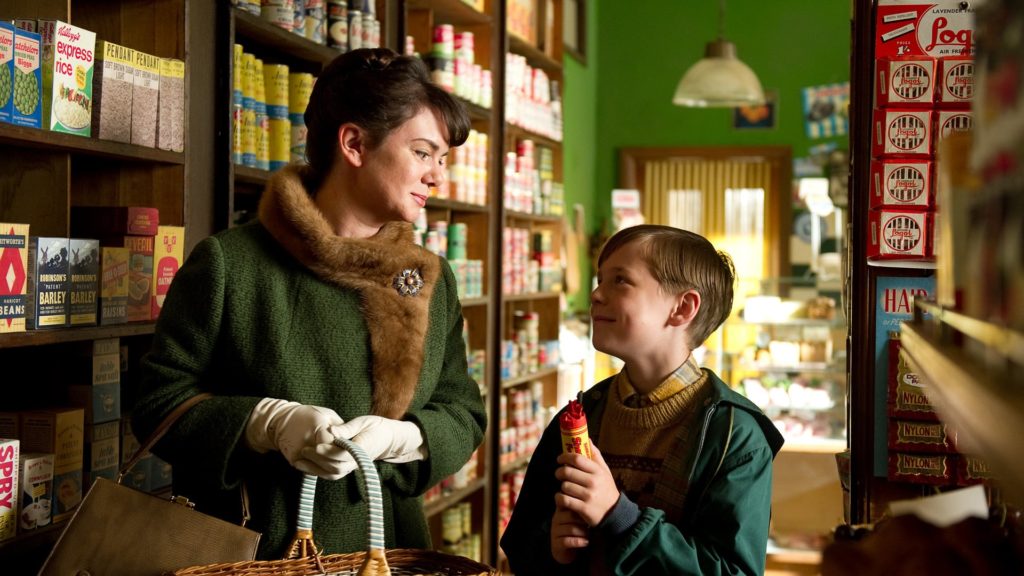Left in the toaster too long
Toast is a fluffy and bittersweet English dramedy set in the 1960s, following the story of a talented teenage chef as he navigates the loss of his mother and his passion for cooking. Adapted and directed by S.J. Clarkson and based on the memoir by celebrity chef Nigel Slater, the film strikes a delicate balance between dry British humor and genuine emotional depth for much of its runtime.
I expect that you read the previous paragraph and something tickled your brain. Maybe you got a chill down your spine and you didn’t know why. There’s something unsettling there, something unholy. And now I will direct your attention to it, readers. It’s the reason I am reviewing the film in the first place. Look at the name of the director and writer: S.J. Clarkson. She has directed exactly two feature films: Toast in 2010… and Madame Web in 2024. Yes, this tiny indie was helmed by the same director as the corporate hack job Madame Web, and you’d have a hard time finding two films that have less in common. Clarkson’s path from British knockoff Sundance dramedy to Marvel bomb of the year involved a lot of TV and mercenary work in the interim, but here she is, and here we are. I will spend the rest of this review pretending that Clarkson has not made another film since Toast, and I encourage you to do the same. It’s easier that way.

Toast has a visual aesthetic that hearkens back to a time when every indie filmmaker hoped their work would be mistaken for a Wes Anderson joint. It features an warm color palette, endless khakis and sage greens. The attention to detail in the set design and costumes is impressive, evoking with richness 1960s England in a smorgasbord of little tacky details.
The script, on the other hand, is deeply hit-or-miss. It has a few segments that Clarkson really brings to life, both of the lighthearted and melancholy variety. The film’s high point is a montage introducing Helena Bonham Carter’s home cleaner character, Mrs. Potter, which is a string of Looney Tunes-style sexual innuendo visual gags: popping appliances, vacuum cleaners sliding in and out, polishing a long cylindrical post, etc.
The first two-thirds of the film are pretty strong in general, toggling gently between comedy and sadness. Nigel (Oscar Kennedy/Freddie Highmore) finds himself drawn to cooking, unsure how much it’s a passion as opposed to something filling the void in his life as his mother, who did the home cooking, grows sick and passes away. But the bulk of the runtime is light, general coming of age material rather than anything too focused or biopic-shaped, giving much of the film a gentle pace and light touch.

However, the final act of the film faceplants really hard, spoiling my goodwill and honestly making the first two acts look worse. As if Clarkson (incorrectly) feared her story didn’t have enough conflict and narrative thrust, Toast loses the delicate balance that made the earlier portions so engaging. An abrupt time jump resulting in a new actor for Nigel totally throws off the film’s pace and comfort. The story flails around, looking for some structure and set of themes to latch onto, shotgunning ideas in an unfiltered and confusing cadence: Is Toast a black sheep teen comedy set in the countryside? Is it an ode to father-son love? Perhaps a reflection on being a gay misfit? For about ten minutes, it commits to being a cooking rivalry caper, but then that peters out, too.
The characterization of Mrs. Potter, who had up until the time jump been a very sympathetic and likable character, also takes a turn for the worse. She goes from friendly foil to a mean-spirited object of hatred and venom, totally at odds with the tone of the rest of the story.

Even the foodie angle ends up being a flop. If you’re making a biopic of a famed cook and you can’t offer the viewers a buffet of delectable-looking morsels to devour with our eyes as our mouths water, then what are we even doing here? Also, is it controversial for me to say that English food is pretty much the least appetizing cuisine on the planet? Everything is lumpy and green or brown, often in an unappealing pudding or paste consistency. I will believe that some of it tastes good (I’m not really convinced of that, but I’m willing to give an entire nation at least a shred of benefit of the doubt), but certainly none of it looks any good on screen in Toast.
Toast is intermittently charming as a soft-vibes coming-of-age biopic, but ultimately far too flawed and uneven to be worth a recommendation, even if you’re a sucker for Sundance-style indies like I am.
Is It Good?
Not Very Good (3/8)
Dan is the founder and head critic of The Goods. Follow Dan on Letterboxd. Join the Discord for updates and discussion.

